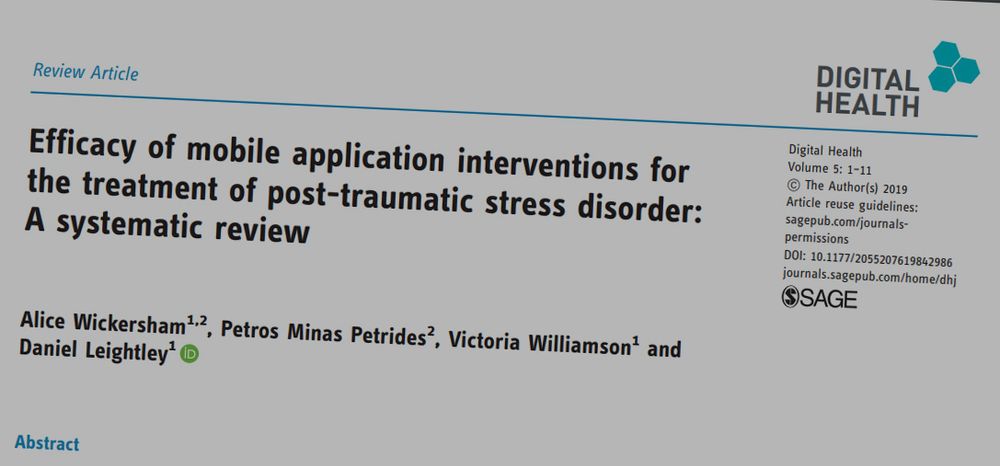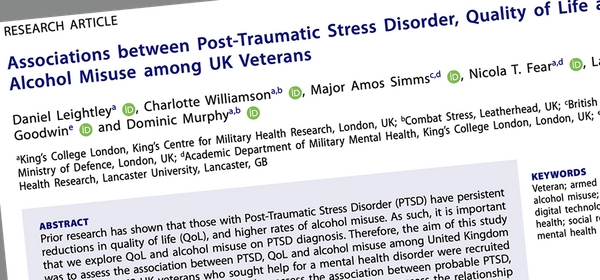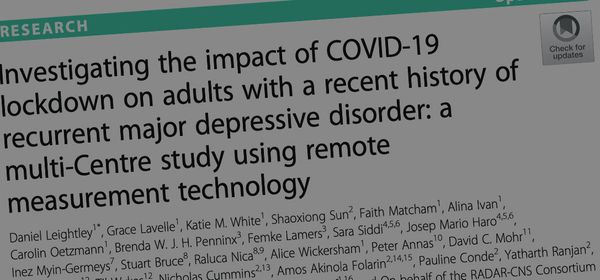Just published: Efficacy of mobile application interventions for the treatment of post-traumatic stress disorder: A systematic review
I am delighted to report that SAGE: Digital Health recently accepted our paper entitled "Efficacy of mobile application interventions for the treatment of post-traumatic stress disorder: A systematic review" for publication, and it has now appeared online here.
SAGE: Digital Health is a relatively new (2018) online only peer reviewed open access journal which focuses on healthcare in the digital world, bridging the evolution of advances in informatics and technology in medicine, health and all aspects of health care. It was the perfect fit for our work, and at present, has a fee waive on Article Processing Charges.
So, what did we find out?
Background of the Study
Many adults with post-traumatic stress disorder (PTSD) are unable to access healthcare services for treatment due to logistical, geographical, social, and attitudinal barriers. Interventions delivered via mobile applications (apps) may help overcome these barriers.
Objectives of the Study
The aim of this study was to systematically evaluate the most recent evidence from Randomised controlled trials (RCTs) investigating the efficacy of mobile apps for treating PTSD.
Methods of the Study
The following databases were searched: PubMed, Web of Science, Embase, PsycINFO, and Medline in February 2018. RCTs were included if they quantitatively evaluated the efficacy of a mobile app for treating PTSD as part of the primary aim. Findings were presented in a narrative synthesis due to the low number of studies identified.
Results of the Study
In the five identified RCTs, the use of app-based interventions appeared to be associated with reductions in PTSD symptoms. However, the strength of evidence for this association appeared to be inconsistent, and there was little evidence that those using the apps experienced greater reductions in PTSD symptoms than those in control conditions. Nonetheless, there was some evidence that app-based interventions are both a feasible and acceptable treatment pathway option.
Conclusions of the Study
Included studies were often limited by small sample sizes, brief intervention, and follow-up periods, and self-reported measures of PTSD. Evidence for the efficacy of mobile interventions for treating PTSD was inconclusive, but promising. Healthcare professionals should exercise caution in recommending app-based interventions until the potentially adverse effects of app use are better understood and larger-scale studies have taken place.



